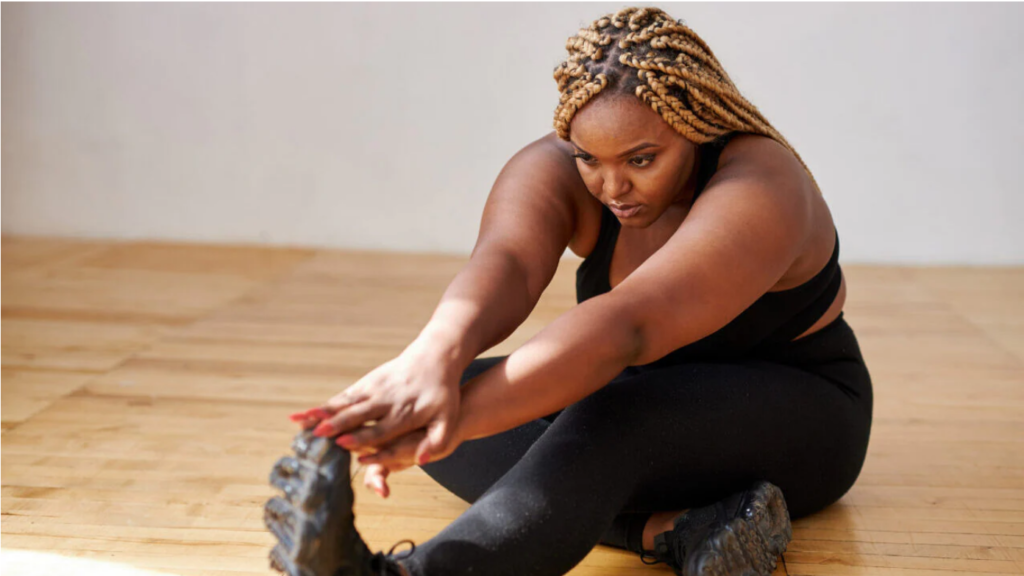We all know exercise is healthy for you, especially in our current COVID-19 reality, but Black women have special challenges when it comes to working out and hair care.
Embrace your natural texture
“I think the reason that it’s such an issue is because natural hair still is not accepted as a professional look in the workplace,” says Nidiyah Salahuddin, stylist and salon co-owner of The Mane Loft in Cliffside Park, N.J. “It wouldn’t be such an issue if women could just go to the gym, sweat out their hair, wet it and wear it curly or natural.”
Dr. Mary Branch, a heart specialist, agrees that hair care and exercise is a challenge, but still decided to embrace her natural hair after having her daughter.
“I didn’t want to relax her hair, and I said, if I’m not going to do it to her, I should start to really appreciate my own hair at this point,” says Branch.
For a straight look, mold your hair (after exercise)
“When you work out at the gym, you want to set your hair, however you want it molded while you’re working out and it’s getting wet,” says Salahuddin.
She adds that this could be in a ponytail, a wrap, or in pins. With a ponytail, you’re using your head like a roller to mold the hair straight and tuck the ends under. Leave it until your hair dries after the workout and use a silk scarf to avoid frizz, if needed.
Pro tip: Get the right tools!
When wearing ponytails while working out, Salahuddin recommends using crease-less bands so you’re not left with an indentation from typical ponytail holders or elastics. Flexible curling rods are also another option to style hair while exercising.
Use dry shampoo in between washes
“If you’re going to work out throughout the week, you can use things to refresh your hair like a dry shampoo or a dry conditioner,” says Salahuddin.
One of the product lines she uses in her salon is the amika brand of dry shampoo.
“A dry shampoo is going to be used at your roots, almost like a deodorant, to absorb the moisture and give you a cleaner feel,” Salahuddin explains.
Branch adds that being mindful of matching your workout schedule with your longer wash and style days, or salon appointments, will also lead to fewer headaches.
“If you say, I’m going to get sweaty three times a week, maybe do lighter exercises in between,” says Branch. Then, on weekends when you’re going out, she says, more of a focus can be made to more intensive styles or applying heat sparingly.
Use braids or other protective styles
Both Branch and Salahuddin agreed that braids are one solution, especially when a woman is first embarking on a weight loss journey and wants to minimize any hindrances. But as Salahuddin points out, even braids are sometimes not welcome in some work environments.
“A lot of women resort to weaves, which is my specialty,” says Salahuddin. “But I want Black women not to forget who they are and you should still feel comfortable in your own hair.”
Salahuddin also points out that caring for your hair is still important underneath the weave, or sew-in.
“The main thing is you need to make sure that it’s being shampooed correctly, because if the base doesn’t get dry completely, then it can have adverse effects,” says Salahuddin. The cost can also be a deterrence for some women.
Watch the full video above for more on working out with relaxed hair care, gym hairstyles for Black hair and healthy hair tips for women!
Dr. Tyeese Gaines is a physician-journalist with more than 20 years of print and broadcast experience, and an emergency medicine physician based in New Jersey. Follow her on Twitter and Instagram. Check out more Black America’s Health context on YouTube!
Courtesy of thegrio

